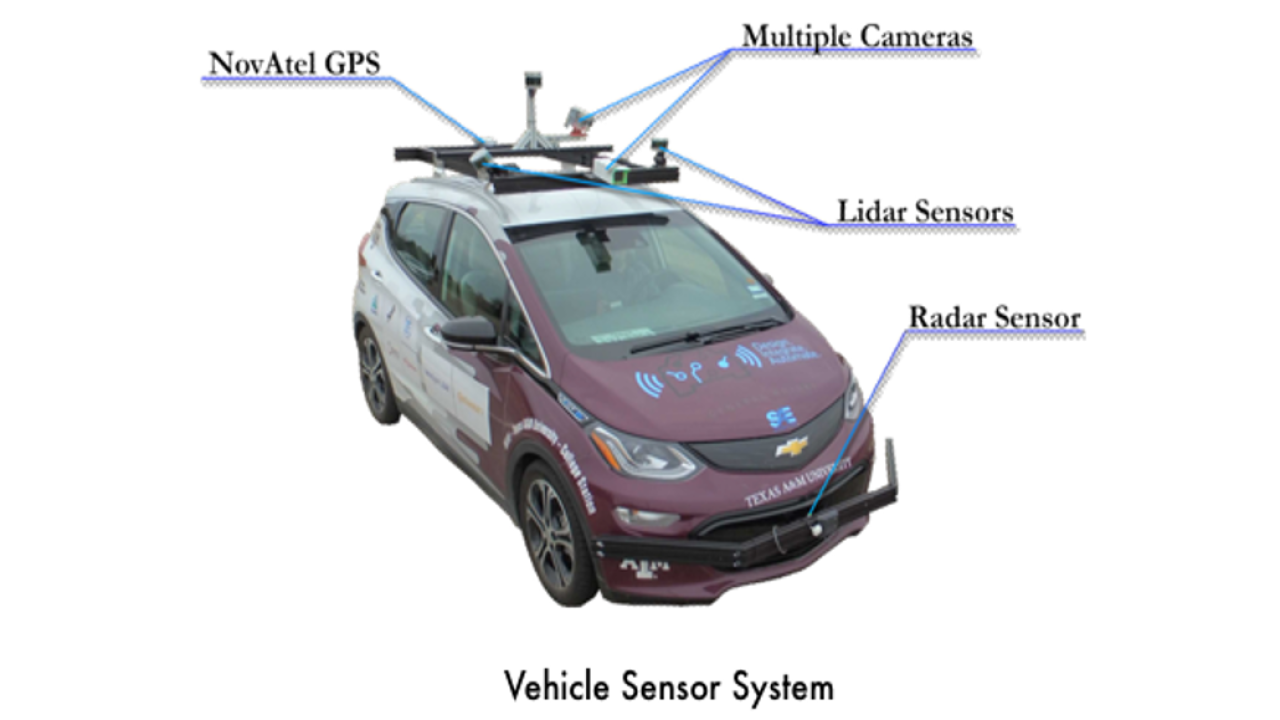
Francis Assadian brings vehicle dynamics expertise to new $7M Department of Transportation project
Mechanical and Aerospace Engineering professor Francis Assadian is a co-PI on a $7 million grant from the U.S. Department of Transportation to study cooperative automated vehicles (CAVs) in rural and multimodal environments. Led by at Texas A&M University, the four-year project titled, “AVA: Automated Vehicles for All” involves collaborators at George Washington University, General Motors, NVIDIA and National Instruments.
CAVs interact with their environment, reading signals from other vehicles road signs, road infrastructure and objects in the road. They respond in real time by alerting the driver of danger or automatically performing a safety maneuver such as braking or swerving to prevent accidents.
However, artificial intelligence is only as good as the data it’s fed. Since most of the data collection for CAVs has been completed in big cities, the vehicles simply aren’t reliable on rural roads, which often have low-quality maps and lack markings and road signs. They are also unreliable in multimodal environments such as an intersection, which involves several components such as bicyclists, pedestrians, multiple road signals and other vehicles.
“This is the part that is missing [from autonomous vehicles],” said Assadian. “Without this data collection, we cannot build CAVs that will be operable for all sorts of conditions.”
Texas A&M’s Alireza Talebpour and George Washington’s Samer Hamdar will send three different vehicles into the field to collect data on everything from what the roads are like to how vehicles respond to each road and to other vehicles and traffic characteristics.
Assadian’s contribution comes in the form of computational modeling and vehicle dynamics, the study of how vehicles interact with the road. Understanding this allows AI to “know” the car so it can safely respond to a dangerous situation. It also impacts vehicle efficiency and emissions, so understanding dynamics is essential to making safer and better automated vehicles.
Assadian will create models of CAVs in rural environments to both validate the experimental data from his colleagues and study the impact of vehicle dynamics on safety and performance.
“We’re trying to develop a comprehensive data set for CAV safety analysis,” he explained. “This hasn’t been studied at all.”
Assadian is an MAE alumnus who graduated with a Ph.D. in mechanical engineering in 1997. Before returning to the department as a faculty member in 2014, he spent 12 years in the automotive industry and five as head of the automotive engineering department at Cranfield University in the UK. He received his B.S. in mechanical engineering at Oklahoma State University and his M.S. in electrical engineering at California State University, Sacramento.
The AVA project is one of eight projects funded by the U.S. Department of Transportation to research ways safely integrate automated driving systems on U.S. roadways. Read the department’s press release to learn more.
